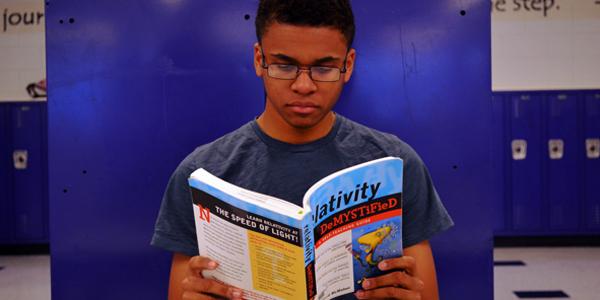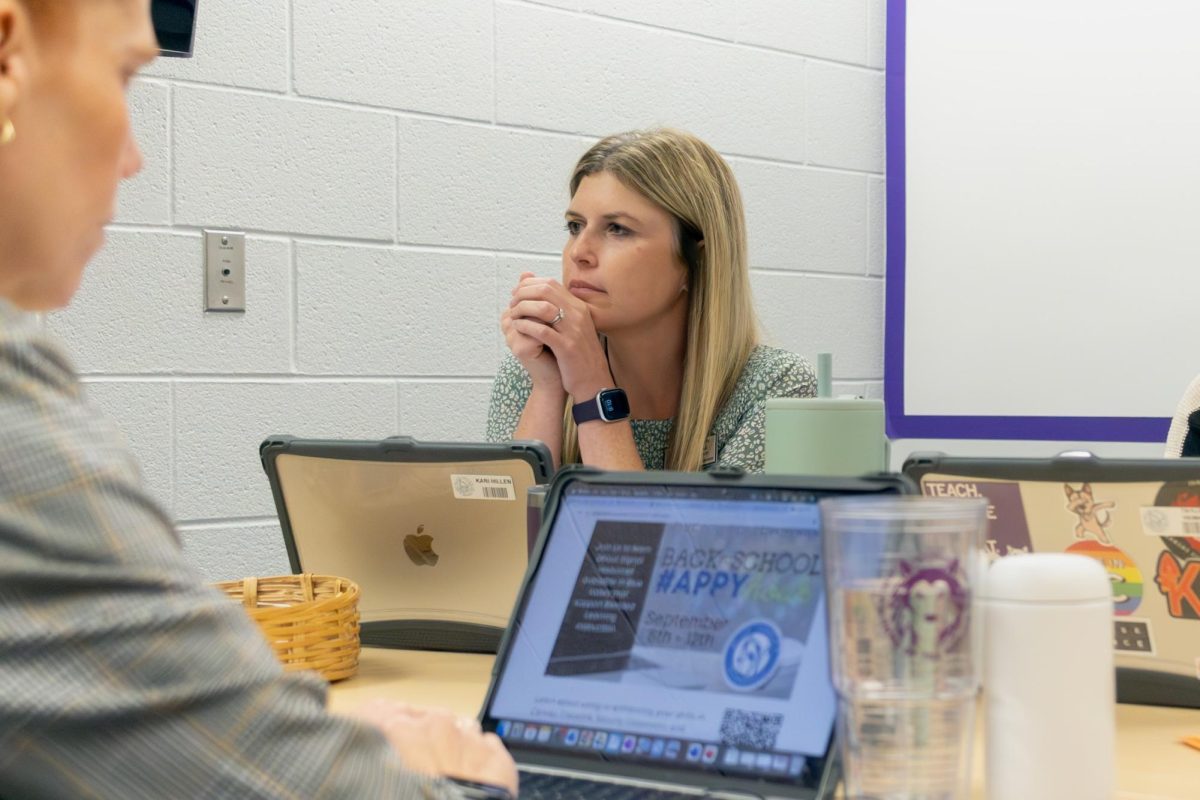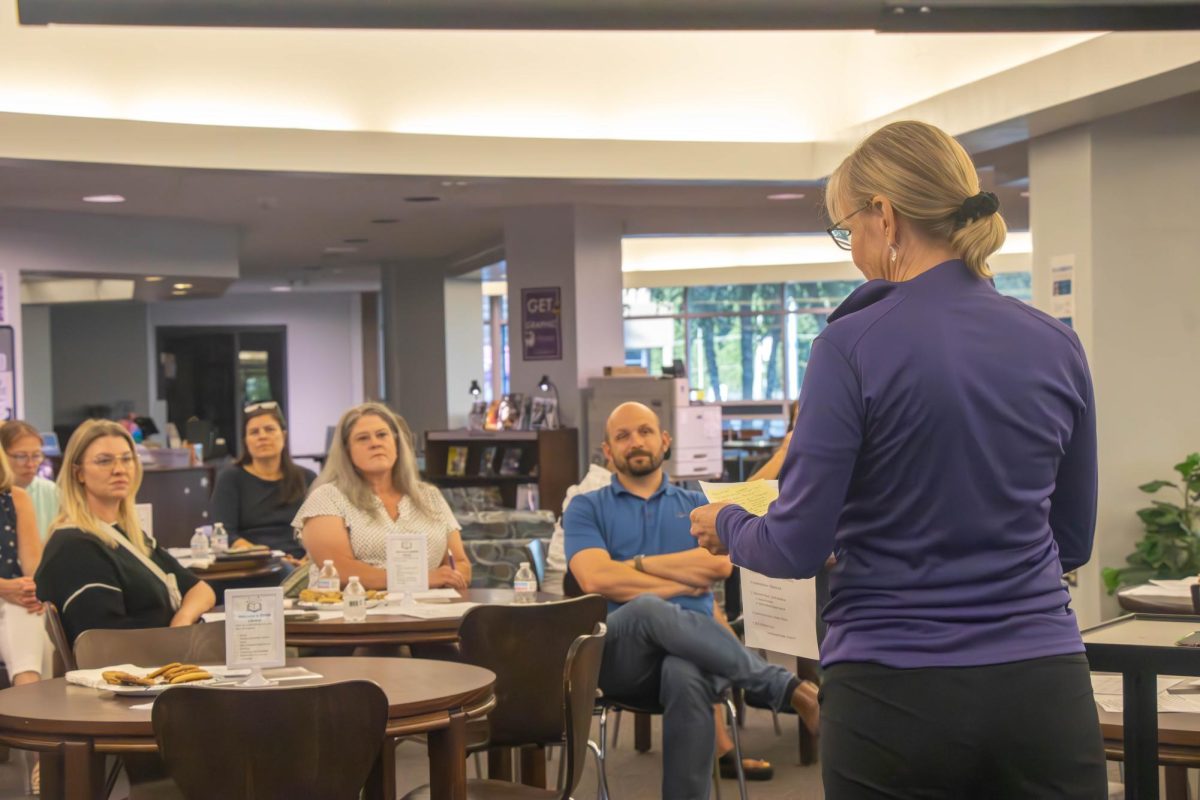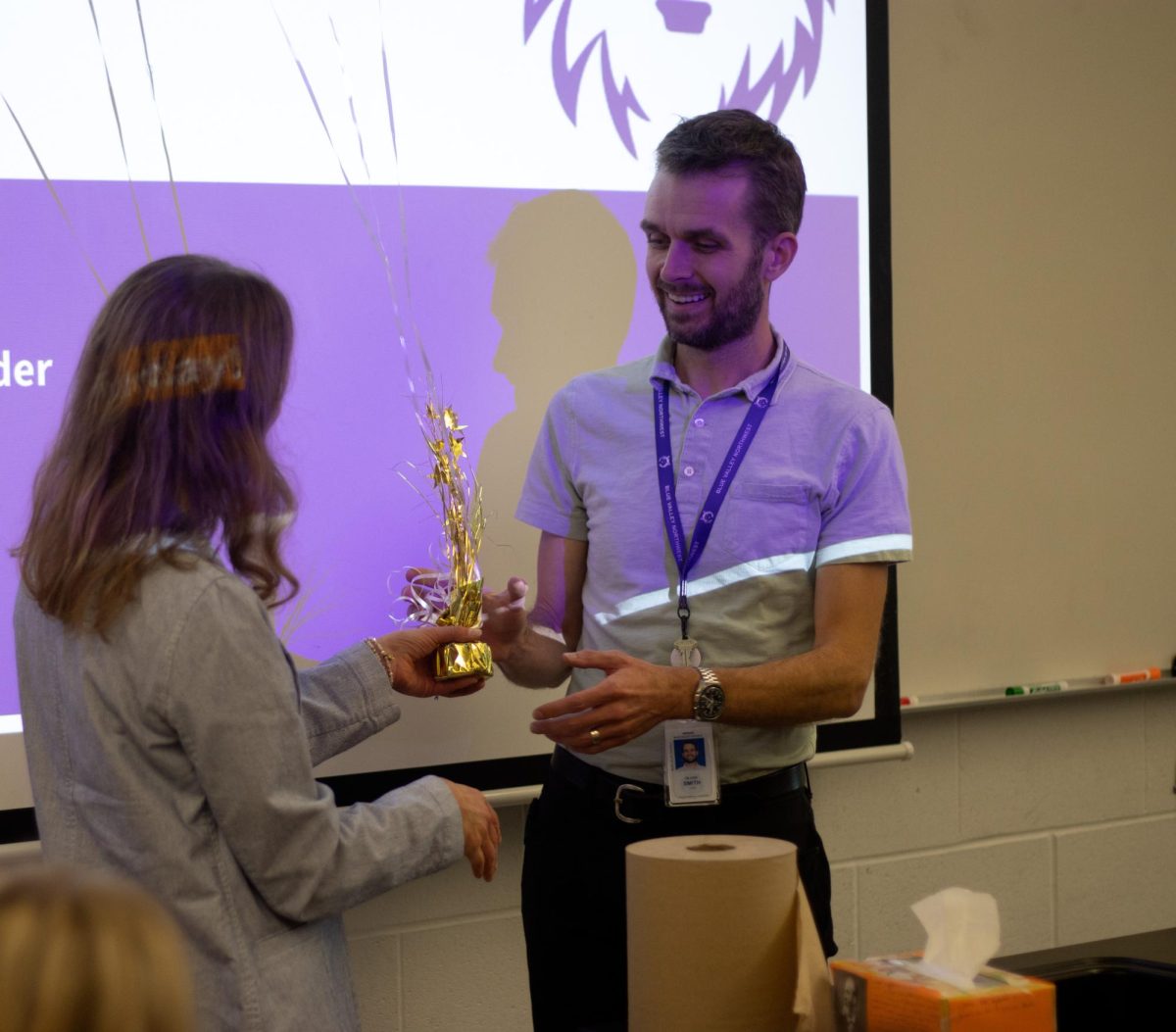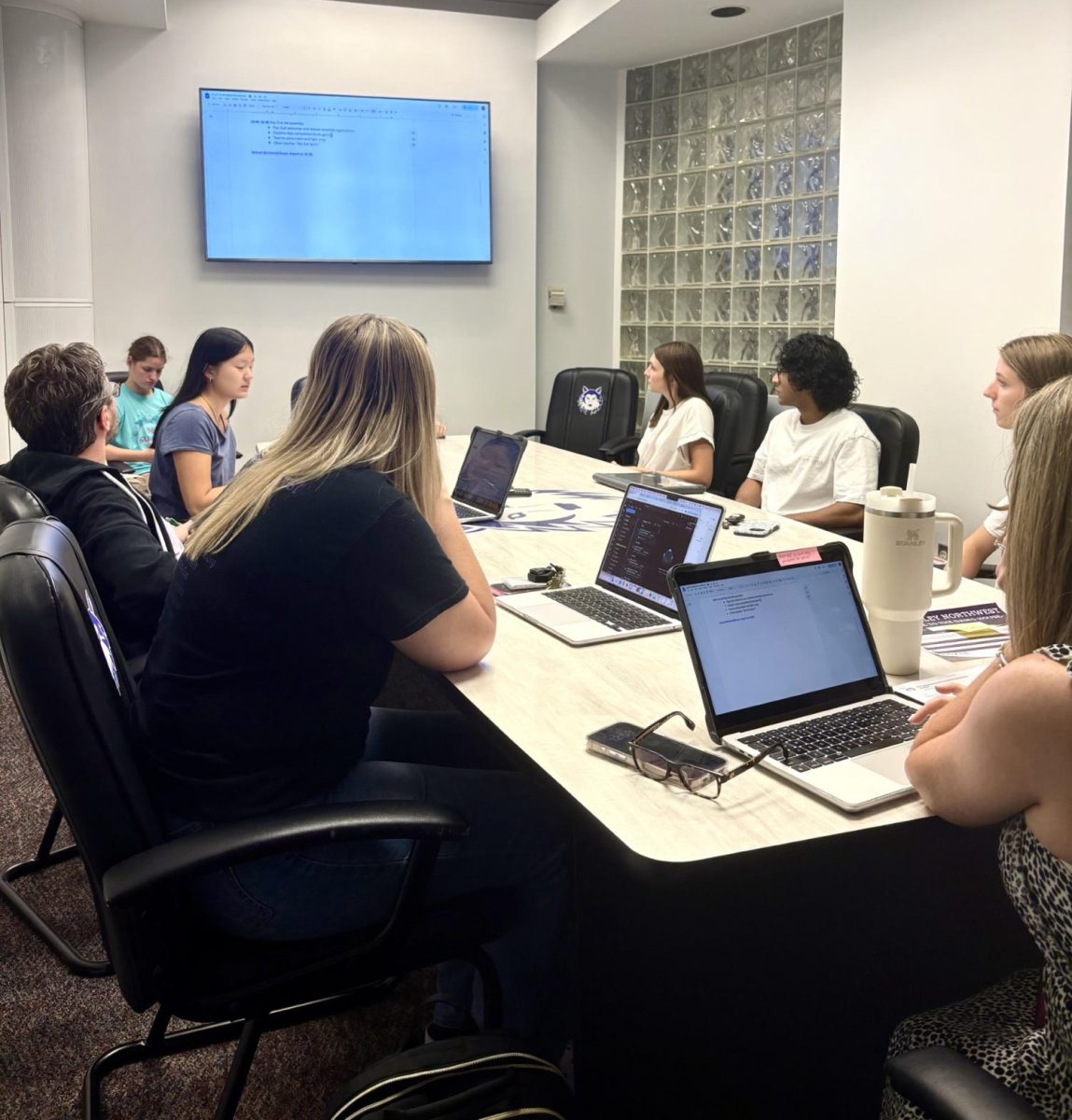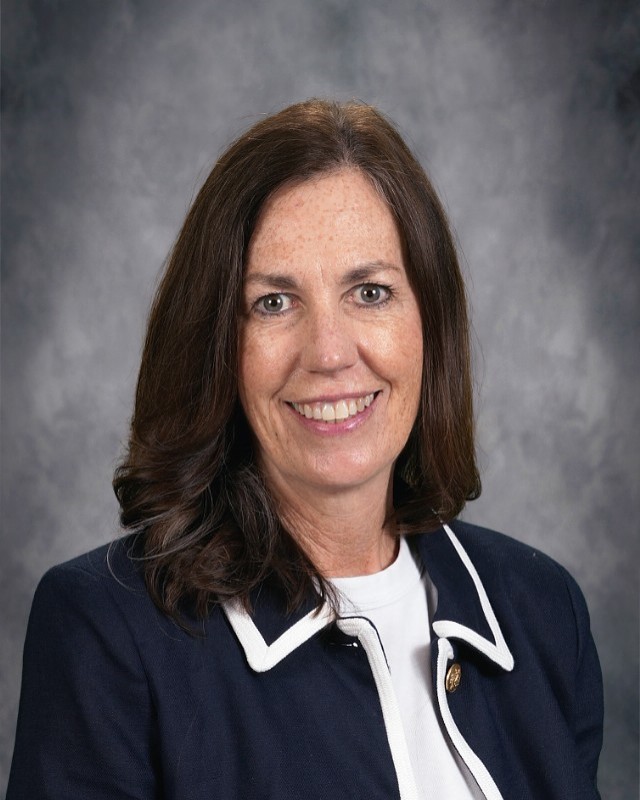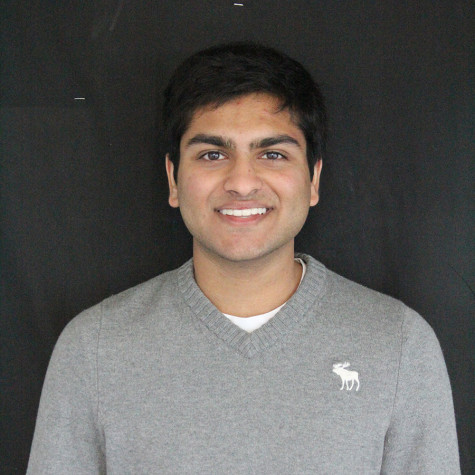As the end of the school day approaches, students rush out of their classrooms and make their way home, where they attend to their homework and relax for the remainder of the day. Instead of watching T.V. or playing video games, junior Tyler Johnson opens up a textbook outlining quantum mechanics and lets his brain absorb the information. Each night, Johnson spends at least three hours preparing for his collegiate math and physics classes.
Johnson said he was able to skip high school physics and math classes by taking them at JCCC or testing out of them. He is currently studying differential equations, linear algebra and modern physics at the college level. These classes come after Multivariable Calculus and AP Physics C.
“I don’t consider myself to be naturally gifted in physics or math,” Johnson said. “I comprehend some things faster than others, but I am slower in some areas. It took me a week to comprehend some kind of integral we did in Calculus III, while it took others an hour.”
Physics teacher Theresa Rudnick said Johnson is taking at least sophomore-level college classes and that the material is much more difficult than a standard high school physics class. She said Johnson is definitely capable of doing the work.
“[Johnson] is much further along in his math and physics abilities compared to the average Northwest student,” Rudnick said. “I think it’s unique that he is as far ahead in his math and science classes as he is. You generally don’t see that with high school students. It’s pretty rare. He’s just naturally curious about all that stuff and he’s really driven to figure it out on his own. He’s a natural physicist.”
Johnson said physics is different in college because the materials they use for labs are more sophisticated, but math is taught in a similar manner. When it comes to the material, Johnson said even he finds it difficult to comprehend at times.
“Quantum mechanics is something that not even the best physicists understand,” Johnson said. “Considering I am doing this from an early age, I have a leg up over others.”
Physics has been one of Johnson’s interests from an early age. He said his interest in physics sparked when he participated in a weekend physics program at KU in seventh grade. His passion for math and physics has grown to the point where he wants to pursue them as a career and achieve his goal of becoming a theoretical physicist. A theoretical physicist uses mathematics to investigate the forces and laws of nature at work in the universe.
People are normally impressed when Johnson tells them about his physics and math classes. However, Johnson said he refrains from talking about it because he thinks it is bragging.
“If people ask me about it, I just tell them I enjoy the subjects,” Johnson said. “My parents are happy for me, but they also like to use precaution because they know that this is high-level stuff and it’s not going to be easy all the time. My mom tells me to slow down because I’ll have time to do this in college, but I’m really interested in doing it now.”
Johnson said his parents are another influence for him. He said they help and motivate him when he is having trouble.
“My mom is an industrial engineer,” Johnson said. “She had to do some of the same stuff, so she can help me with a lot of the math and some science. When I am writing a research paper, my dad helps me because he is an executive producer for a morning news show. He makes sure it is understandable and not too technical.”
Johnson’s mom, Sharon Johnson, said she hasn’t really seen him struggle with physics, but sometimes he finds it stressful balancing the work with other activities. She said Johnson discovered his interest in physics on his own and no one really pushed him to do it.
“I am very proud that [Johnson] has chosen a field that he likes and does well in,” Sharon said. “I believe that physics has helped him mature. I’m just hoping that he continues to do something that challenges him and that he enjoys doing.”
Along with studying difficult classes after school, Johnson said he also takes many other AP classes at school. He said he is able to keep up with the workload because he is good at managing his time and prioritizing the work. Johnson advises other students who are interested in taking a difficult physics class to have a good background in math.
“Physics is 90 percent math,” Johnson said. “The other 10 percent is conceptual. If you go into an upper tier physics class, it’s mostly conceptual, but there is also a lot of math. Even if you’re doing just a high-level math class, I think it’s worth it because math helps with critical thinking. I love physics because it’s a really big challenge. By the end, you’re basically reading a second language that you didn’t see your self-being able to do. Its just kind of my thing.”


